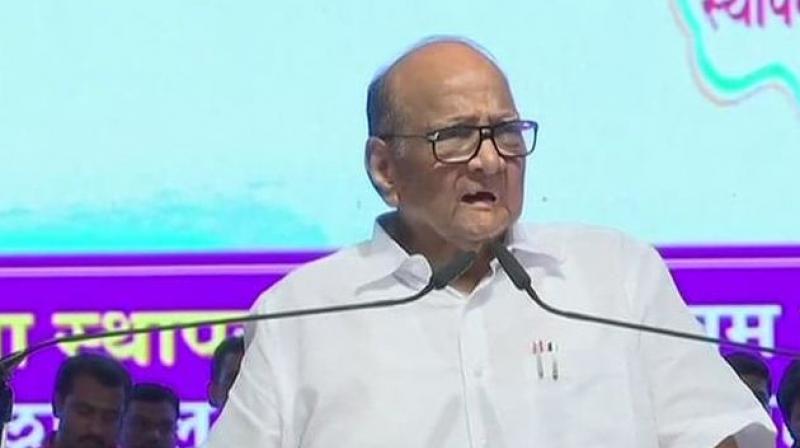Opposition parties appear to move forward on unity

Last week’s dinner meeting of senior Opposition leaders in New Delhi, at the house of NCP chief Sharad Pawar, appears to be the most consequential of all confabulations among them so far. Points of difference were not glossed over, and were spoken of without hesitation in media briefings. And yet, there was a surprisingly positive new development taking shape toward forging a pre-poll alliance to be cemented together with a common minimum programme.
The key players, including Congress president Rahul Gandhi, Trinamul Congress leader and West Bengal chief minister Mamata Banerjee, Telugu Desam chief and Andhra Pradesh chief minister N. Chandrababu Naidu and even AAP chief and Delhi CM Arvind Kejriwal, attended the discussion. Some weeks earlier, Mr Naidu had commended the pooling of political resources of the Opposition parties, in spite of their mutual differences in many cases, as a “democratic compulsion” in meeting the challenge posed by the ruling BJP in the coming Lok Sabha polls. That spirit was on display at the conclave at Mr Pawar’s residence. It remains to be seen in what way the Opposition leaders succeed in taking the idea forward. A pre-poll alliance has greater political value than a post-poll getting together of parties with a view to government formation in the event of no party securing a majority.
According to convention that has developed in this country, the President or a governor gives a chance at government formation to a pre-poll alliance in preference to post-poll allies in the first instance. Of course, if there is competition, the largest pre-election alliance will be called first.
Interestingly, at their meeting, it is Ms Banerjee who seems to have first broached the idea of becoming allies before the polls are held. She was candid enough to say that in states the allies may fight polls against one another in view of the political realities on the ground. It is yet to be seen if she is ready to part with Lok Sabha seats to the Congress in West Bengal. If not, questions will remain. The same is true for the Congress and the
TDP in Andhra Pradesh, or between the Congress and AAP in Delhi. It will soon be clear how the anti-BJP Opposition is able to surmount these difficulties.
News reports suggest that after the meeting Mr Gandhi did not outright reject the idea of an alliance with the AAP, saying the issue was not discussed at the meeting. This is indicative of some change in the Congress thinking.
The Opposition leaders have reportedly entrusted the work of drawing up a common minimum programme to Mr Gandhi, evidently drawing on the Congress’ long experience in such matters. The idea of a CMP is suggestive of a broad ideological concurrence of views among the Opposition parties which attended the meeting even if some degree of discord continues to exist.

